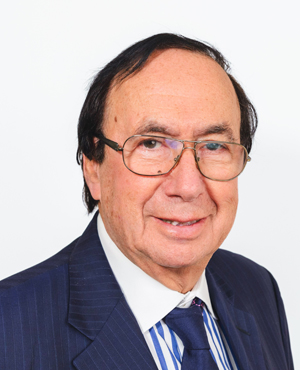Who Gets the Money in a Wrongful Death Lawsuit?

When tragedy strikes and you lose a loved one due to someone’s negligence, it’s imperative to understand who’s entitled to the wrongful death lawsuit compensation.
Our article offers a detailed analysis of eligibility, damage valuation, fund allocation, and legal proceedings involved in these sensitive cases.
Navigate this complex terrain with us as we aim to provide clarity for individuals seeking justice during such difficult times. A Brooklyn wrongful death lawyer from Held, Held & Held can help you seek justice for your lost loved one. You can rely on us.
Understanding the Basics of Negligence Claims
Negligence claims form the basis of most wrongful death lawsuits. In these cases, it’s necessary to prove that the defendant’s carelessness directly caused the victim’s death. The negligence theory is key in these cases as it provides a systemic approach to determining legal fault or liability.
It can be complex, but you’re not alone in this journey.
In assessing blame, evidence collection and witness testimonies become paramount. Every detail counts when establishing a solid case for negligence. Remember, your goal here isn’t just winning; it’s about seeking justice for your loved one and preventing such incidents.
Together, let’s hold those accountable who have caused pain through their actions by handling this process with precision.
Eligibility for Compensation: Who Gets the Money in a Wrongful Death Lawsuit?
In New York, the laws surrounding wrongful death claims are designed to provide recourse to specific individuals who have suffered the loss of a loved one due to another party’s negligence or intentional act.
Eligibility for compensation in a wrongful death case is typically determined by the relationship between the deceased and the potential claimants:
- Immediate Family Members: Spouses and children of the deceased are usually the primary beneficiaries of a wrongful death claim. These family members are often entitled to seek compensation for the financial and emotional impact of the loss.
- Parents: If the deceased was a minor or financially supported their parents, the parents may be eligible to pursue a wrongful death claim.
- Dependents and Beneficiaries: Individuals who were financially dependent on the deceased, such as stepchildren, adopted children, and other individuals who relied on the deceased for financial support, may also be eligible to claim compensation.
- Personal Representatives: The executor or administrator of the deceased’s estate has the right to initiate a wrongful death claim on behalf of the estate and distribute any compensation to the eligible beneficiaries.
- Non-Family Members: In some cases, individuals who were not immediate family members but could demonstrate financial or emotional dependence on the deceased may be eligible to seek compensation.
It’s important to note that eligibility criteria can vary based on specific circumstances and applicable laws. Consulting an experienced wrongful death attorney in Brooklyn is crucial to understanding your rights and pursuing rightful compensation. At Held, Held & Held, our dedicated team is here to guide you through these challenging times.
Determining the Value of Damages
Determining how much you’re owed in damages is a complex process that considers several different factors. It’s not just about the pain and suffering your loved one endured but also what their loss means to your life and future.
In wrongful death lawsuits, two main types of compensation are calculated: economic damages and non-economic damages.
Economic damages include lost income, medical bills, and funeral expenses – anything with a tangible price tag.
On the other hand, non-economic damages involve subjective costs such as pain and suffering or loss of companionship – aspects that can’t be measured monetarily but significantly impact your quality of life.
A Brooklyn wrongful death attorney can help you calculate the damages for your lawsuit, ensuring you receive fair compensation.
Allocation of Settlement Funds
When a settlement is achieved, comprehending the distribution of funds among surviving family members becomes paramount. In New York, the methods for distributing funds among beneficiaries are contingent on state regulations and specific case details. Typically, you’ll encounter an equitable division amongst immediate family or an allotment based on the extent of dependency.
Embracing a sense of unity and sharing the compensation can foster a feeling of togetherness during these trying times.
However, it’s crucial to remain mindful of potential tax implications linked to these settlements. Generally, wrongful death settlements are exempt from taxation for recipients, but any accrued interest may be subject to taxation. Mishandling this aspect could significantly impact your tax obligations.
Working with a knowledgeable attorney will ensure you navigate this process with efficacy and equity, particularly within the nuances of New York law.
Legal Aspects and Proceedings
Navigating legal aspects and proceedings in a settlement case can be challenging, but it’s essential to ensuring justice is served. You’ll have to understand courtroom procedures, face litigation challenges head-on, and take steps to formulate a compelling argument for your case.
During these proceedings, you’re not alone—you belong to a community seeking justice for their loved ones. The courtroom becomes a platform where your voice echoes within the walls of law. Every document filed and every argument made is a step towards righting the wrong that has been done.
Remember, though the path may seem daunting at first glance, each stage of this journey is crucial. With patience and determination, you can handle these complexities and strive for justice in your wrongful death lawsuit.
Contact Held, Held & Held Today
If you’re involved in a wrongful death lawsuit, understanding the basics of negligence claims and who’s eligible for compensation is crucial.
Determining the value of damages and how settlement funds are allocated can be complex.
Filing a wrongful death lawsuit may seem daunting.
Although this process may seem overwhelming, you are not alone. A wrongful death lawyer from Held, Held & Held is here to simplify the process and ensure you seek justice for your lost loved one. You can trust us.
Contact Held, Held & Held today to schedule a free case review.
